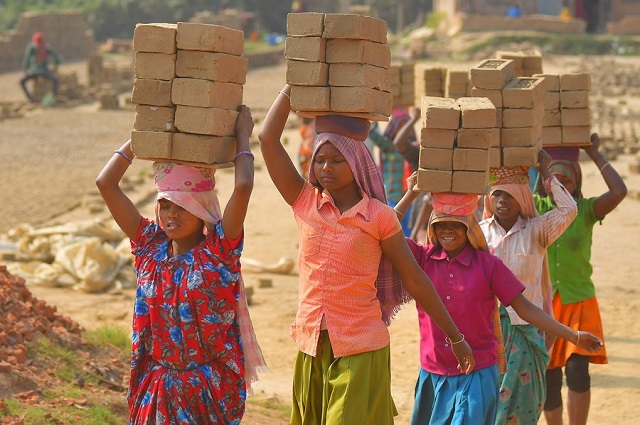The importance of supporting public healthcare funding is underscored by the large amount of out-of-pocket payments made by patients and their families.
As the election process unfolds in India, right-to-health networks are urging that more attention be given to healthcare. During the presentation of the People’s Health Manifesto on March 23, Jan Swasthya Abhiyan (JSA), the regional arm of the People’s Health Movement, put forth a list of recommendations for political parties participating in the election. These points aim to achieve universal access to healthcare in the country.
 |
| Women work at a brick field in the outskirts of Agartala, the capital city of India's northeastern state of Tripura, March 5, 2020. (Str/Xinhua) |
JSA highlighted 18 key points for candidates to consider, which include establishing a common system to provide health services to all citizens, developing mechanisms to safeguard workers’ health, halting the commercialization of medical education, ensuring that health facilities remain spaces of secularism and inclusion, and removing all barriers to accessing healthcare.
The JSA Manifesto emphasizes health expenditure. India’s public health spending is among the lowest globally, with only 0.37 percent of the Union government’s budget allocated to healthcare in the 2020-21 fiscal year. The COVID-19 pandemic highlighted the need for increased health investment, yet further cuts to the central health budget have been announced. In the 2024-25 fiscal year, health expenditure is expected to amount to only 0.29 percent of the budget, reducing the scope and quality of care available to the public.
The importance of supporting public healthcare funding is underscored by the large amount of out-of-pocket payments made by patients and their families. Speakers at the manifesto launch warned that over half of health expenditure comes directly from patients.
from the Peoples Dispatch / Globetrotter News Service











Post a Comment